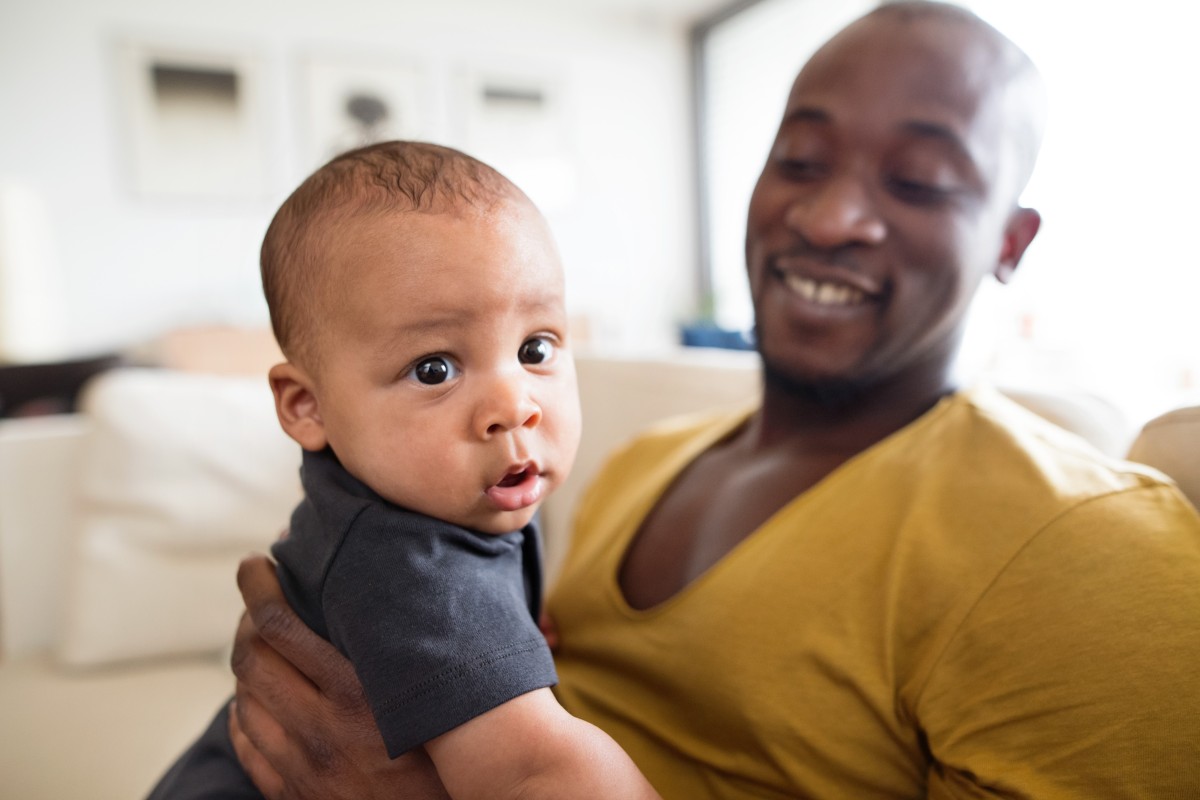The basics of bonding with babies


New born babies actively respond to their world through sensing noise, touch, smell, light and taste. They recognise their mothers’ voices and those of other close adults. At this early age it is essential that you provide plenty of close physical contact with them. When talking to babies, maintain eye contact and wait for a response. Always try to talk to a baby face to face, bending to his level whenever possible. If he is lying on a mat, lie next to him; if he is sitting in a bouncy chair, sit opposite him on the floor (rather than hovering over him). While talking to him, maintain physical contact by gently touching him, cuddling, or stroking his face or arms. This close contact will help to create a strong bond, as well as providing a feeling of comfort and security.
How you can help:
- Be close to your child; whenever possible, position yourself at his level so that you can see each other
- Use your voice to soothe or excite but remember that babies will also notice other visual signs of communication if they can see you, such as a smile, wink or frown.
- Always be enthusiastic when talking with young children – they will enjoy your time together more readily
- Be patient and offer babies lots of time and attention. This will help you to get to know them and how they like to communicate.
Basic Routines
It is important, as far as possible, to establish routines in the early months of a baby’s life. Eating, dressing, bathing and resting are all ideal times for strengthening intimate bonds and for establishing early routines. Naturally, you will always respond to a baby’s needs as they arise and enjoy the spontaneity which is all part of looking after a young child. However, the introduction of routines at an early stage is helpful for spending focused time together. Routines also encourage a sense of security in young children.
How you can help:
- Always attempt to hold your baby while feeding and winding. Talk to him when you do this, offering praise and encouragement.
- Explain what you are doing as you carry out a routine, such as stirring, filling a spoon, or pouring the milk.
- Encourage your baby to feed himself when you feel he is ready, but be warned – you need to expect a mess!
- When dressing your baby, tickle the part of his body about to be covered!
- Name the parts of his body and the garments that you are helping him to put on.
- Explain that we wash his hands and face to keep clean.
- Talk through the routines.
- Offer praise for the smallest things.
- Use little rhymes to involve your baby in the routines. They can be totally silly – whatever you invent, the babies will enjoy!
The Environment
If possible, try to create stimulating environments for the areas where your usual caring routines are carried out. This will enable you to focus on the actual routine, while your baby is encouraged to participate in the activity itself. Very young children have a limited understanding of their surroundings and use all their senses to find out more about their environment. As a parent, try to feed these senses. Using bright colours and patterns on wall hangings, mobiles and rugs around your baby’s cot or changing station will provide visual stimulation for your child. Play different types of music for him to listen and respond to.
How you can help:
- Change the mobiles and pictures around your child every so often.
- Call his attention, not only to what is happening during the routine, but also to what he can see, hear and touch.
- When washing his hands or brushing his teeth, encourage him to touch the dry soap and dry bristles and to smell what he is using.
- After a bath, use large, soft and warm towels to wrap him in. Call his attention to the touch of his pyjamas, blankets and teddies.
Independence
Within the first three years if you have successfully bonded, your young child will be confident and eager to be independent. While you are constantly supporting and helping your child, it is easy to miss the signs that he is ready to try things for himself. Watch him closely and set little challenges. A good time to encourage independence is when your baby moves onto solids. Let him explore different tastes, smells and textures during snack and mealtimes. Children as young as six months will attempt to feed themselves and it is important to introduce finger foods as soon as your baby is ready. This will encourage him to feed himself. Inevitably, this will create more mess to clear up, but more importantly it will help in the development of key motor skills while your baby learns to manipulate his environment and objects in that environment.
How you can help:
- Give your child push-and-pull toys for him to use.
- Offer support when required but respect your child’s independence and allow him to try to do as much for himself as possible.
- Invite him to gather some of the items needed for the routine to be carried out.
- Ask him to suggest what should happen next and act on his suggestion.
- Allow him to help with the preparation of the routine, occasionally letting him take charge.